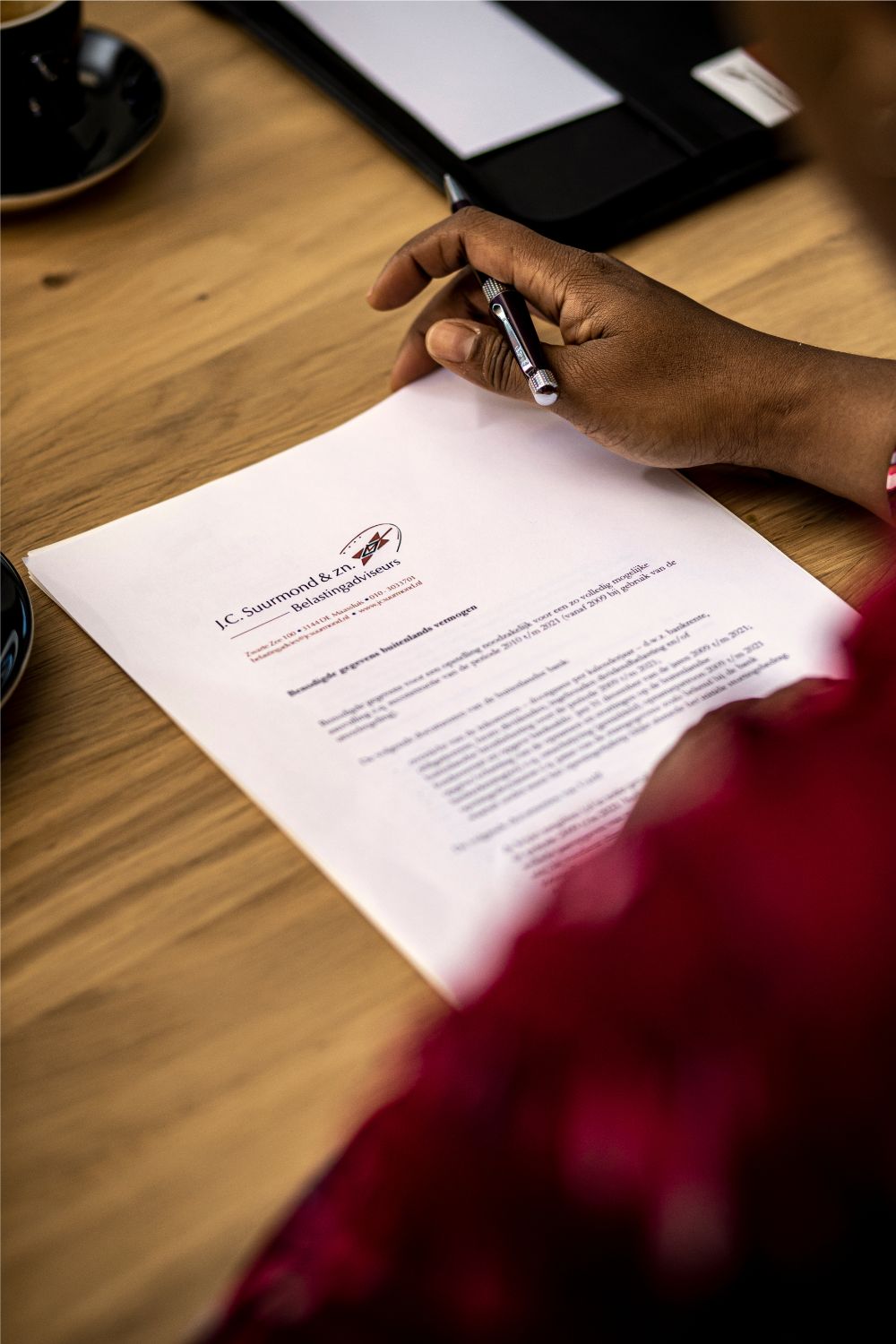J.C. Suurmond & zn. Belastingadviseurs
Een hele belasting minder!
Al vanaf 1986 ligt onze focus op internationaal belastingadvies inclusief emigratie en remigratie.
Naast het advies bij (r)emigratie adviseren wij ook bij de inkeerregeling, internationaal ondernemen, erven en schenken.
Internationaal belastingadvies
Laat u adviseren over de 183-dagenregeling, remigreren naar Nederland, emigreren, uw huis aanhouden in Nederland, internationaal pensioen of besteedt het invullen van uw M-formulier aan ons uit.
Wij adviseren in de Nederlandse kant van internationale situaties. Voor de verzorging van aangiftes uit andere landen zoals de V.S. en Engeland, kunnen wij u doorzetten naar een andere adviseur. Hier meer over voorkoming dubbele belasting.
Belastingadvies in complexe situaties
Naast internationaal belastingadvies adviseren wij ook in binnenlandse situaties. Bezit u box-3 vermogen? Wilt u weten hoe u dit vermogen fiscaal zo gunstig mogelijk kunt beheren? Onze experts kunnen u adviseren over de gevolgen van emigratie als DGA, als u pensioen in het buitenland heeft of over een familiebank.
Inkeerregeling en buitenlands vermogen
Neem contact op over uw mogelijkheden voor de inkeerregeling. Ook indien u van de Belastingdienst al een brief heeft gehad of uw buitenlandse rekening in de vooringevulde aangifte staat vermeld.


Nooit meer belastingtips en nieuws mislopen?
Schrijf u dan hier in voor onze nieuwsbrief!
Missie
Omdat de belangen van onze cliënten centraal staan voor ons, zetten wij graag die extra stap om het beste resultaat te bereiken. Als uw vertrouwde adviseur besparen wij u tijd, geld en zorgen. Een hele belasting minder!

Internationaal belastingadviseur
Het belang van het inschakelen van een internationaal belastingadviseur
Wanneer in uw situatie bepaalde internationale aspecten spelen, wilt u natuurlijk zeker weten dat wat u doet belastingtechnisch correct is zodat u ‘compliant’ bent. De Belastingdienst kan immers hoge boetes opleggen wanneer het een en ander niet goed geregeld is.
Met het advies van onze specialisten bent u ervan verzekerd dat u bijgestaan wordt door ervaren adviseurs die goed op de hoogte zijn van belastinggevolgen in internationale situaties.
U bent goed voorbereid wanneer u in het buitenland gaat werken. U bent verder op de hoogte van bijvoorbeeld of er wel of geen belasting op uw loon mag worden ingehouden. In de meest uiteenlopende situaties kunnen wij u voorzien van volledig internationaal belastingadvies.
Wie zijn Suurmond Belastingadviseurs
Al vanaf 1986 is internationaal belastingadvies onze focus waarmee wij als onze cliënten graag bijstaan.
Wij voorzien ook in advies bij andere internationale situaties zoals werken in het buitenland, inkeerregeling, m-biljet en remigratie of een tweede huis in het buitenland. De toegevoegde waarde die wij door ons fiscale advies kunnen bieden, vormt voor ons daarbij het speerpunt. Tevens dient niet over het hoofd te worden gezien dat een correcte aangifte problemen in de toekomst voorkomt. Dat bespaart tijd, geld en zorgen. Een hele belasting minder!

Contact
J.C. Suurmond & zn. Belastingadviseurs
Zwarte Zee 100
3144 DE Maassluis
+31 (0)10-3033701
belastingadvies@jcsuurmond.nl
Nieuws
Nooit meer belastingtips mislopen? Schrijf u dan in voor onze nieuwsbrief!
Algemene informatie
KvK Handelsregister: 27224918
BTW-nummer: NL 8016.36.668.B.01
Belastingconsulentennummer: 330826
